
Micronutrients: small, mighty, essential

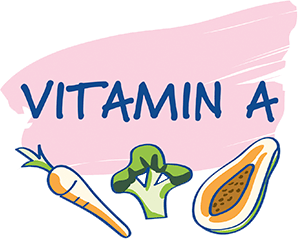
Vitamin A contributes to the normal functioning of the immune system, and maintenance of normal vision, skin, and mucous membranes.
The recommended daily intake is 300mcg RAE (retinal activity equivalents). Vitamin A can be found in carrots, spinach, mangoes, broccoli, and papayas.
Deficiencies could result in anaemia, weakened resistance to infection, and xerophthalmia – the leading cause of preventable blindness in children.
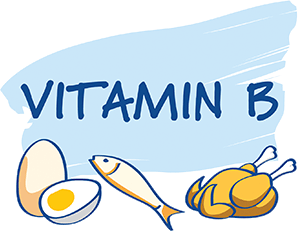
Vitamin B2 contributes to the normal metabolism of energy-yielding nutrients such as carbohydrates, fats, proteins, and the normal functioning of the nervous system, maintenance of normal mucous membranes, red blood cells, and skin. It protects cells from free radicals. It also reduces tiredness and fatigue.
Vitamin B12 contributes to the normal metabolism of energy-yielding nutrients such as carbohydrates, fats, and proteins. It also helps the normal functioning of the nervous and immune system, homocysteine metabolism, psychological function, and red blood cell formation. It has an important role in the multiplication of body cells for growth.
The recommended daily intake is 0.5mg of Vitamin B2 and 0.9mcg of Vitamin B12. It can be found in wholemeal breads, brown rice, beans, lean meat, fish, and eggs.
Deficiencies could result in tingling and numbness in hands and feet, poor appetite, digestive problems, and fatigue.
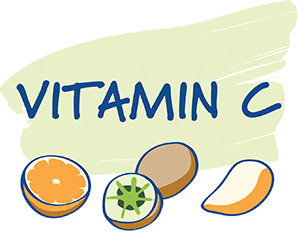
Vitamin C contributes to normal collagen formation for the normal functioning of bones, blood vessels, cartilage, gums, skin, and teeth. It also helps the normal functioning of the nervous and immune system, and the absorption of iron.
The recommended daily intake is 15mg. It can be found in oranges, papayas, kiwis, broccoli, and mangoes.
Deficiencies could result in joint pain, swollen or bleeding gums, and low concentration of ascorbate in plasma, blood, or leukocytes.
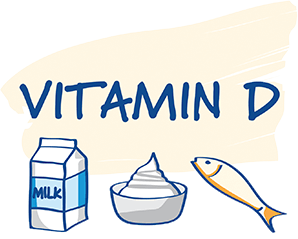
Vitamin D contributes to normal blood calcium levels for strong teeth and bones. It also helps the normal functioning of the immune system, and the regulation of cell growth.
The recommended daily intake is 10mcg. It can be found in yoghurt, fish, and fortified milk.
Deficiencies could result in rickets, and the softening and weakening of bones.
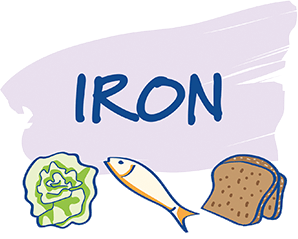
Iron contributes to the normal formation of red blood cells and haemoglobin, oxygen transport in the body, cognitive function, and function of the immune system.
The recommended daily intake is 10mg. It can be found in fish, poultry, leafy vegetables, beans, and wholemeal breads.
Deficiencies could result in shortness of breath, decreased resistance to infections, and general fatigue.

Zinc contributes to the maintenance of normal vision, skin, nails, function of the immune system, and the protection of cells from free radicals. It also has a role in cell multiplication.
The recommended daily intake is 3mg. It can be found in milk, cheese, yoghurt, brown rice, lean meat, and fish.
Deficiencies could result in diarrhea, pneumonia, and malaria.
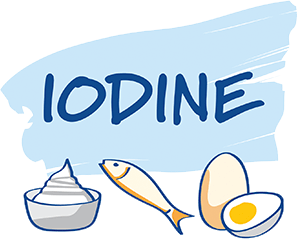
Iodine contributes to normal cognitive function, energy metabolism, and thyroid hormone synthesis.
It can be found in seaweed, cod fish, tuna, yoghurt, turkey breast, eggs, and baked potatoes.
RELATED ARTICLES
